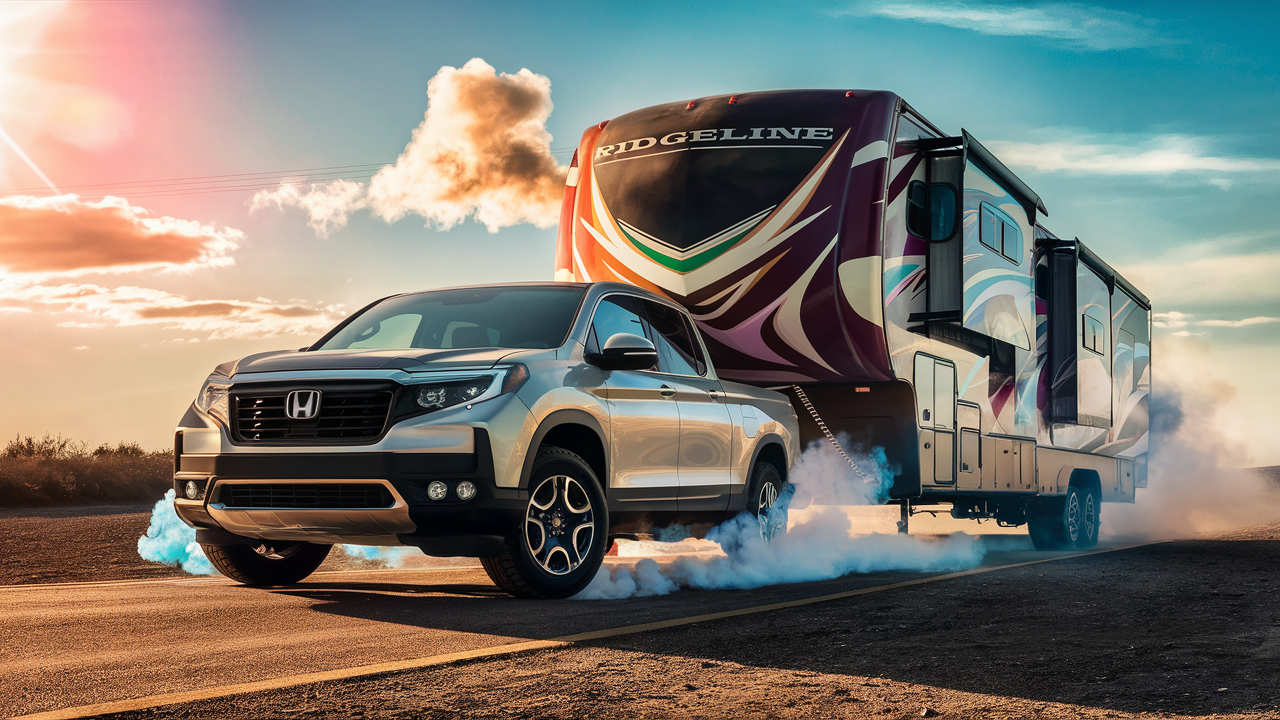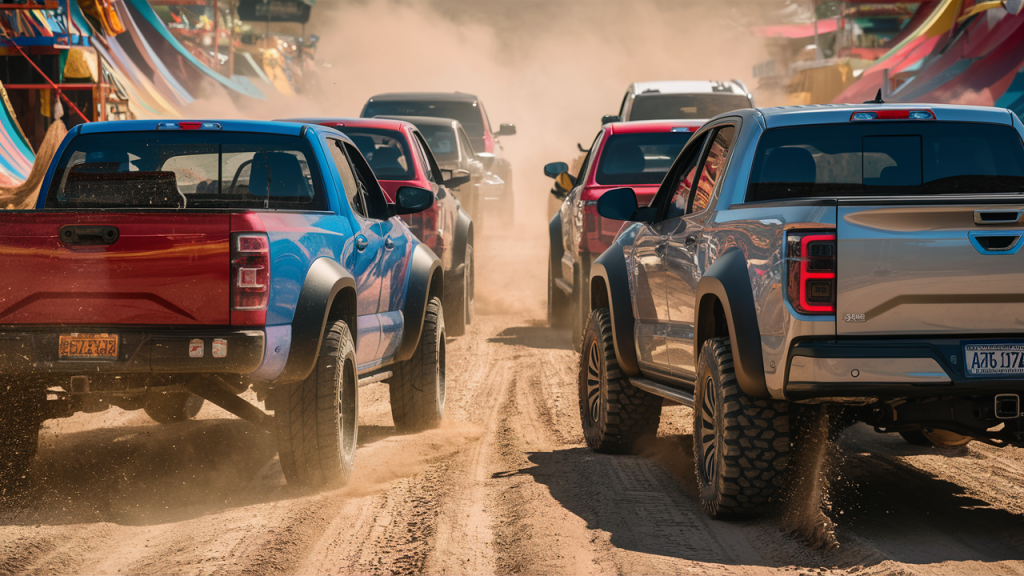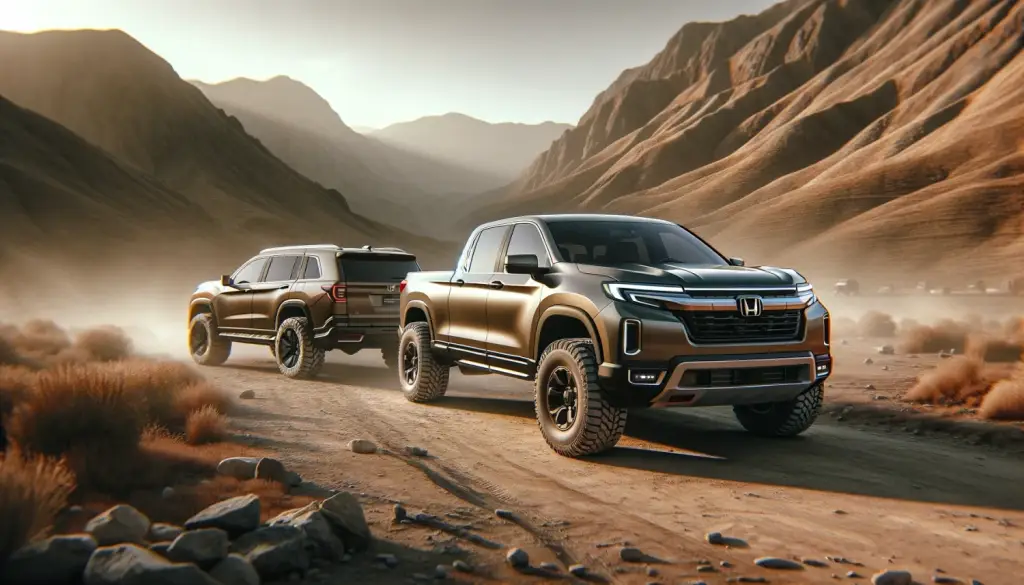Are unibodies real pickups or just cars with cargo space?

now, and it doesn't show any signs of cooling off anytime soon. At the heart of this heated discussion is the humble Honda Ridgeline and its controversial unibody design.
Is it a legit truck worthy of parking next to the big rigs at the worksite? Or is it more of a blasphemous "crossover with a bed" that hardcore truck fans should shun? There's plenty of strong opinions on both sides of the aisle.
10. The Never-Ending Truck Bed Debate
For years, truck fans have been going back-and-forth over whether rigs like the Honda Ridgeline are "real" pickups or just glorified cars with beds strapped on. Traditional trucks use a body-on-frame design, while unibody jobs like the Ridgeline integrate the body and frame into one piece. Let's dive into this heated debate!
9. Honda's Truck Inception
When Honda wanted a slice of that lucrative truck pie in the early 2000s, they didn't have a dedicated truck team to design a body-on-frame beast. Their workaround? The unibody Ridgeline - allowing them to get trucky without starting a whole new division.
8. The Smooth Operator
One of the big perks of a unibody design is the smooth, quiet ride. Since there's no separate body jiggling around on a frame, things stay nice and settled - more crossover than construction site.
7. Ridgeline's Split Personality
While the Ridgeline rocks a traditional truck look, it's still built like a Honda car underneath. This unique design means it drives more like your family sedan than an F-150.

6. Trade-Offs? You Bet
Let's be real - unibody pickups like the Ridgeline can't quite match body-on-frame trucks for hardcore towing and hauling. The current model maxes out at 5,000 lbs towing and 1,583 lb payload.
5. The "Bro-sover" Appeal
Even with slightly less muscle, the Ridgeline is a hit with buyers who dig its crossover vibe with a "truck-ish" twist. It's the Goldilocks solution for those who want a daily driver that can still handle light duty trucking.
4. Trucks Go Softer?
With automakers having to hit tougher fuel economy targets, don't be surprised if more of them borrow a page from Honda's playbook. Lighter, more efficient unibody designs could be the name of the game.

3. What Even Is a "Truck" Anymore?
Here's the thing - there's no official rulebook defining what makes a bona fide "truck." Unibody rigs give you a different flavor, blending some truckiness with car-like comfort.
2. Keepin' Up with the Chuds
As customer needs and lifestyles change, what we consider an acceptable "truck" will change too. If crossover-inspired unibody haulers like the Ridgeline fit modern needs better, they could become the new normal.
1. Innovate or Die
At the end of the day, the auto industry is all about staying innovative to give buyers what they want. Cutting-edge designs like the Ridgeline push our idea of what a "truck" can be, and that's a good thing!
So Who's Right?
There's no definitive "right" answer in the unibody vs body-on-frame truck debate - it really comes down to differing priorities and needs for different buyers.
Unibody designs like the Honda Ridgeline are great for those who want the versatility of a truck bed and light towing capabilities, but prioritize a smoother, more efficient daily driving experience akin to a crossover. The trade-off is you sacrifice some heavy-duty hauling chops.
On the flip side, traditional body-on-frame trucks are the clear winners if you need maximum towing muscle, payload capacity, and ruggedness for tough jobsites or off-roading. But you'll pay for it with lower fuel economy and a harsher ride when just running errands.
Ultimately, there's space for both philosophies as automakers continue innovating to give buyers more choices tailored to their specific needs and lifestyles. The "real truck" gatekeeping seems increasingly outdated as definitions evolve. As long as it capably serves its intended purpose for the owner, you could make an argument for different designs being legitimate "trucks" in their own way.
Pros and Cons of Unibodies
Unibody Truck Pros:
- Smoother, quieter ride thanks to integrated body/frame
- More fuel efficient and car-like drivability
- Decent light-duty towing/hauling capabilities
- Crossover comfort and convenience as a daily driver
Unibody Truck Cons:
- Can't match heavy-duty hauling of body-on-frame rigs
- Lacks the rugged, tough image of traditional truck looks
Body-on-Frame pros and cons
Body-on-Frame Truck Pros:
- Superior towing and payload ratings
- Extremely durable and long-lasting frame
- Brawny, ultra-capable image for serious truckers
- Ideal for punishing jobsite/off-road conditions
Body-on-Frame Truck Cons:
- Harsher, louder ride quality
- Less fuel-efficient and cumbersome for daily driving
- Typically more expensive, especially in higher trims
The debate rages on as customer needs evolve and automakers innovate. Unibody designs offer great versatility, while body-on-frame is still king for heavy hauling.